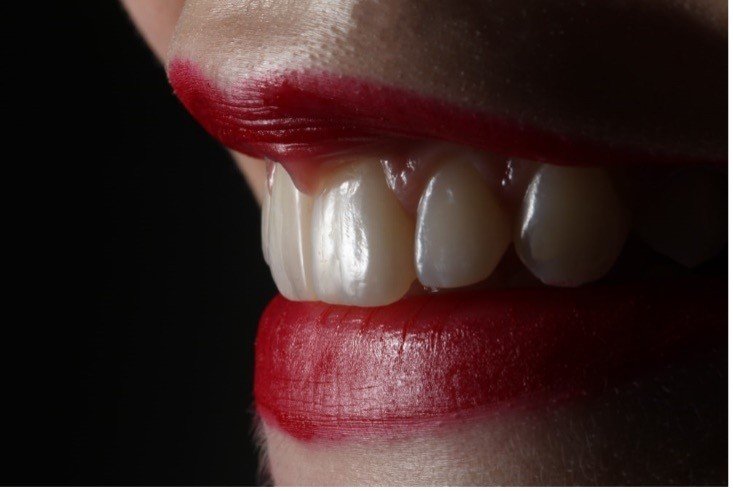
We use our teeth quite extensively every day. They chew, rip and masticate food enabling us to eat the food we need for sustenance. Aside from that, our teeth also help shape our faces and enable us to speak clearly.
Unless you have toothache, you might not give your teeth and their origins much thought. Usually, when you do give your teeth any thought it’s because you require help in the form of remedies for tooth ache a composite veneer for aesthetics or some whitening to feel more confident about your smile. But there’s a lot more to your teeth than you think.
Facts About Teeth That Might be New to You
Several very interesting facts surround our teeth and early tooth maintenance. Let’s have a look at some fun, and some not so fun, facts.
As Unique as Fingerprints
Teeth are as unique as fingerprints. No two people’s sets are alike. For this reason, dental records are often used to identify human remains. Interestingly enough, identical twins might be identical in every way but when it comes to teeth, they are very different.
Hard as Enamel
Have you ever heard anyone use the term “hard as enamel” to describe something almost unbreakable? Well, that’s probably because enamel is the hardest part of your body.
Its sole purpose is to protect your teeth from damage. Enamel is even stronger than bones because of the crystallites and protein that create it. The only real damage to enamel happens as a result of sugary foods that break it down.
Enamel Can Decay
When enamel starts decaying, it starts turning yellow. Decaying enamel is caused by the enzymes in sugary foods, as well as not sticking to a regular brushing and cleaning regime.
Different Quantities for Different Animals
While humans usually only have 32, other types of animals have varying amounts. Dolphins can have up to 250 and horses only 44. The common garden snail on the other hand has thousands of minute teeth used to munch through plants and vegetation.
Irreparable
Unlike bone, tissue or muscle, teeth are the only part of the human anatomy that can’t repair itself by fusing or growing back. This is mostly because teeth are covered in enamel, which isn’t living tissue.
Teeth at Birth
While most babies are born without teeth, it’s not uncommon to find teeth in some babies’ gums. On average, 1 in every 2000 babies is born with what’s known as “natal” teeth. These teeth are located in the bottom gums only and have weak roots. Physicians will usually remove them as they can cause problems during breastfeeding.
Bacteria Haven
The human mouth is probably the most bacteria-filled place on the planet. Up to 300 different species inhabit the average mouth. One of these bacteria species, Streptococcus mutans, converts sugar into toxic acids which eat away at the enamel of your teeth.
Gallons and Gallons of Spit
The average mouth produces 730 litres of spit every year. That equates to about 10,000 gallons per lifetime. Saliva is important because not only does it make food easier to swallow, but also contains the necessary enzymes to start the digestion process.
The First Greek Toothpaste
Ancient Greeks were using toothpaste before 500BC. However, there was nothing minty fresh about the early toothpaste since it contained rust and coral powder. This mixture was applied using twigs.
Hidden Beneath Gums
On average, a third of each human tooth is hidden underneath the gums. This gives your teeth the proper support needed to stay firmly secured in your mouth. It’s also very important to take care of your gums.
Dentures’ Early Roots
Would you believe that the first dentures date back to 700BC? The Etruscans of Italy constructed the first false teeth from animal teeth and gold wire. While they didn’t last long, they remained the norm for centuries. The 1700s saw the actual first dentures made.
Wisdom Teeth
Wisdom teeth are the last four teeth to appear in your mouth. They erupt through the gums at a later age in life and can be quite painful. These late-developing teeth have earned the name “wisdom teeth” since they appear when you’re at a more mature age.
Often, wisdom teeth become stuck in the gums and need to be surgically removed. Not all people need their wisdom removed, but they can cause the other nearby teeth to start lifting from their roots. In those cases, dentists usually advise they be removed.
Tooth Worms
Before the 1960s, it was a popular belief that toothaches originated from a “tooth worm” that lived inside your gums. If the pain subsided, rumour had it that the worm was resting. If the pain went away completely, the worm had died!
Conclusion
Performing daily dental hygiene is crucial to maintaining the life of your teeth. However, modern dentistry, in the form of veneers and dentures can help you give new life to your smile if you need it. Your smile is the first feature people notice about you, so why not make yours memorable!



